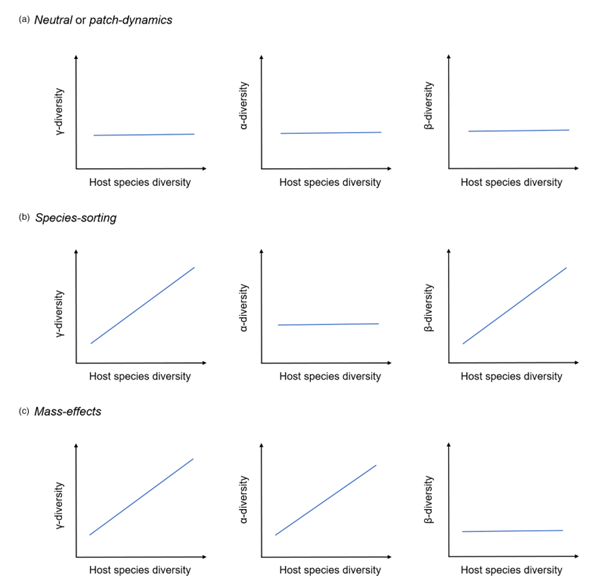[ad_1]
2023 HARPER PRIZE SHORTLIST: All through March, we’re that includes the articles shortlisted for the 2023 Harper Prize. The Harper Prize is an annual award for one of the best early profession analysis paper printed in Journal of Ecology. Xian Yang’s article ‘Totally different meeting mechanisms of leaf epiphytic and endophytic bacterial communities underlie their larger variety in additional numerous forests‘ is a type of shortlisted for the award:

👋 About me
I grew up in Beijing, China. Spending most of my formative years in city areas, I had little expertise within the wild, which felt distant and mysterious to me. It wasn’t till my sophomore 12 months of faculty, whereas pursuing a significant in Environmental Chemistry, that my journey into ecology started—an sudden flip impressed by a discipline journey to Changbai Mountain. This location, celebrated for its distinctive vertical vegetation belts, was the place my fascination with ecology took root. Exploring the varied ecosystems from temperate blended forests to alpine tundra, I used to be amazed by the fascinating and complicated interactions in nature.
Motivated by this expertise, I pursued a grasp’s diploma in Ecology at Peking College. There, I had the chance to conduct in depth vegetation surveys throughout China’s diversified landscapes, the place I observed how a lot human actions have modified the ecosystems, deepening my dedication to ecological research. My doctoral analysis at Georgia Institute of Expertise delved into the consequences of varied anthropogenic environmental modifications, reminiscent of nutrient enrichment and habitat fragmentation, on the meeting of plant and microbial communities.
My postdoctoral analysis centered on the phyllosphere microbiome, a comparatively understudied space ripe with potential for brand new discoveries, and it was additionally the main focus of my shortlisted paper. Now, as an Assistant Professor at Solar Yat-sen College, I proceed to analyze the advanced dynamics of ecological communities, with a particular emphasis on microbial communities that kind symbiotic relationships with vegetation, and look at how human-induced environmental modifications affect these communities.
🔎 In regards to the shortlisted paper
Leaf-associated microbiomes, that are recognized to affect host plant health and ecosystem functioning, have acquired a lot current consideration. My prior analysis investigated the impacts of habitat loss and fragmentation on neighborhood meeting, using metacommunity concept as a elementary framework. These works led me to view leaf microbiomes as metacommunities, contemplating leaves and bushes not merely as organic entities however as distinct habitat patches inside a broader, residing panorama. But, I discovered that this complete theoretical framework had scarcely been utilized to the research of leaf microbiomes. It appeared that the advanced world of microorganisms residing on and inside plant leaves may drastically profit from the insights offered by metacommunity dynamics, significantly as a result of dispersal of those microorganisms amongst leaves and the dynamic interactions between these microorganisms and their plant hosts.
This realization impressed the analysis introduced in our shortlisted paper, the place we pioneered the applying of metacommunity concept to leaf microbiome research. We proposed a brand new framework that leverages host biodiversity gradients to establish completely different archetypes of host-associated microbial metacommunities (Determine 1).


We then utilized this framework to decipher the meeting mechanisms of leaf microbiota in a large-scale forest biodiversity experiment in subtropical China (the Biodiversity–Ecosystem Functioning Experiment China [BEF-China], Determine 2). Our findings revealed that distinct meeting mechanisms characterize leaf epiphytic and endophytic bacterial communities, regardless of their shared constructive relationships between plot-level host and bacterial variety. These findings counsel that plant biodiversity loss may inevitably result in a discount in leaf microbiome biodiversity. Nonetheless, the mechanisms underpinning this loss could differ for micro organism inhabiting completely different plant habitats, doubtlessly carrying vital implications for ecosystem functioning mediated by these micro organism.
Discover Xian Yang on GoogleScholar.
Learn the total listing of articles shortlisted for the 2023 Harper Prize right here.
[ad_2]
Source link



